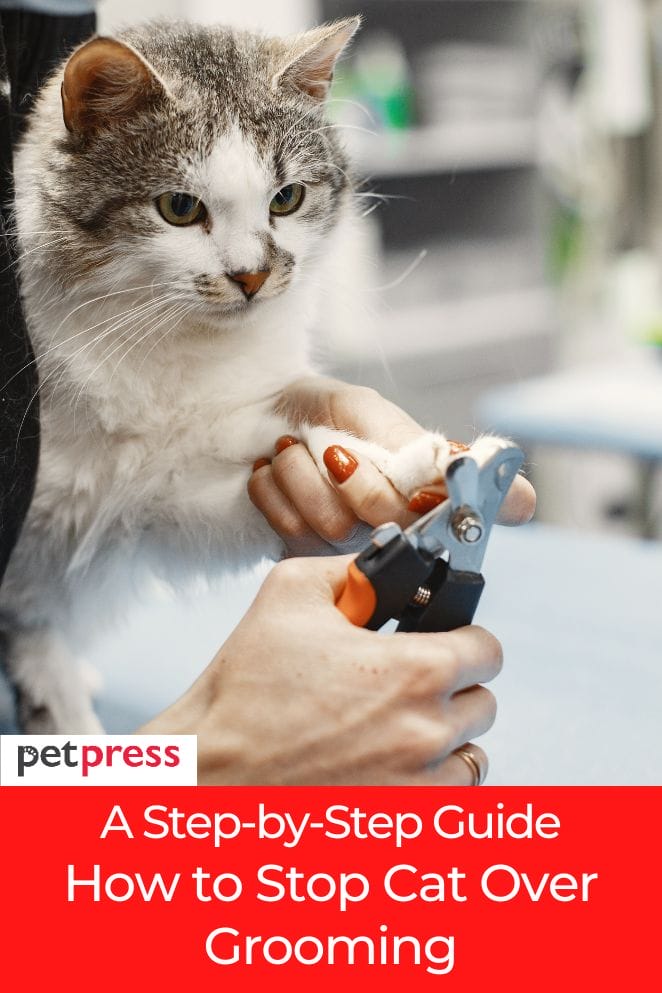
If you’ve noticed your cat grooming itself excessively to the point of hair loss or skin irritation, you might be dealing with over-grooming.
This common issue can stem from various medical or behavioral factors, and understanding the root cause is crucial to addressing it effectively.
In this post, we’ll explore the causes of over-grooming, identify signs to watch for, and provide practical steps to help your cat return to a healthy grooming routine.
Causes of Over-Grooming
Medical issues
Several medical conditions can lead to over-grooming in cats. These include:
Allergies
Just like people, cats can have allergies.
They might be allergic to certain foods, flea bites, or things in their environment like pollen or dust.
When a cat has an allergy, it often gets itchy skin.
To relieve this itchiness, the cat will groom itself a lot.
Think of it as the cat’s way of scratching an itch.
Parasites
Tiny pests like fleas, mites, and ticks can also make a cat itch.
These parasites bite the cat, causing intense itching and irritation.
In an effort to soothe themselves and get rid of the pests, cats will groom excessively.
Without treatment, this grooming can become obsessive.
Skin infections
Cats can get skin infections caused by bacteria or fungi.
These infections can make their skin feel sore and itchy.
When a cat’s skin is infected, it may groom the irritated area excessively to try to find some relief.
These infections can occur due to an injury or another underlying health issue.
Pain
Cats sometimes over-groom specific areas of their bodies that are painful.
For example, if a cat has arthritis, it may groom the joints that hurt.
This is their way of dealing with the pain, similar to how we might rub a sore muscle.
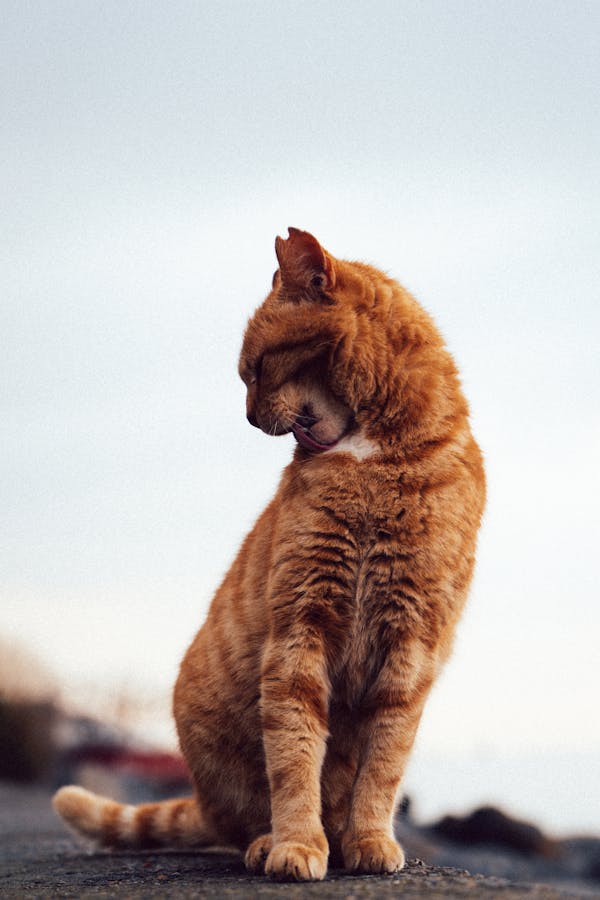
Behavioral factors
Behavioral issues can also contribute to over-grooming. These include:
Stress and anxiety
Cats are very sensitive creatures and can easily get stressed or anxious.
Changes like moving to a new home, having a new pet or family member, or being exposed to loud noises can make them uneasy.
When a cat feels stressed or anxious, it might groom itself a lot more than usual to try to calm down and feel better.
Grooming becomes their way of coping with these unsettling changes.
Boredom
Cats need plenty of mental and physical activities to stay happy.
If they don’t have enough toys, playtime, or things to do, they can get bored.
A bored cat might start grooming itself excessively simply because it has nothing else to keep it busy.
Grooming becomes a way to pass the time and keep entertained.
Compulsive behavior
In some cases, over-grooming turns into a compulsive behavior.
This is similar to obsessive-compulsive disorder (OCD) in humans.
A cat might start grooming itself obsessively, even when there’s no real reason to do so.
This can become a hard habit for the cat to break.
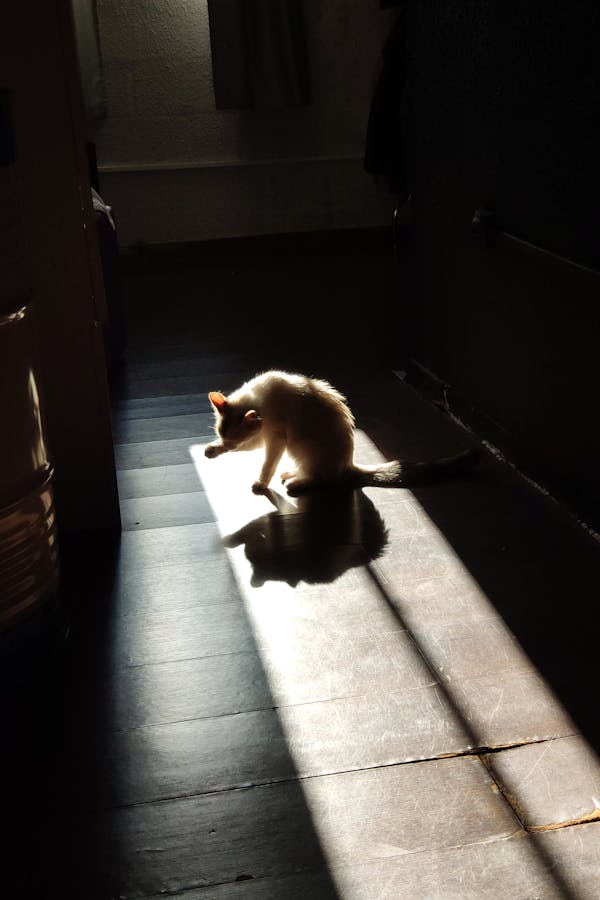
Signs of Over-Grooming
Recognizing the signs of over-grooming can help you intervene before the behavior becomes severe.
Bald spots
One of the most noticeable signs of over-grooming is hair loss.
If you see bald spots on your cat, especially on its belly, legs, or sides, it’s likely due to excessive grooming.
The cat licks or chews on these areas so much that the hair falls out, leaving patches of bare skin.
Skin irritation
Over-grooming can cause the skin to become red, sore, and sometimes infected.
You might notice scabs, rashes, or inflamed areas where your cat has been grooming too much.
These irritated spots can be painful and may need medical attention to prevent further issues.
Behavior changes
Pay attention to how often your cat is groomed.
If you notice your cat licking or chewing its fur more frequently than usual, it could be a sign of over-grooming.
Obsessive grooming, where the cat seems almost fixated on cleaning one particular area, is another clear indicator.
This behavior is more intense and frequent than normal grooming routines.
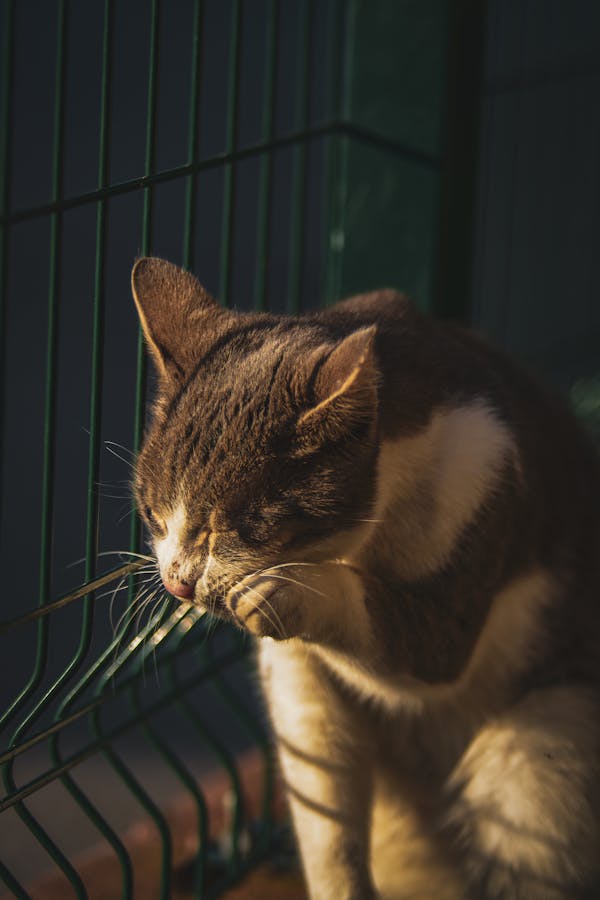
How to Stop Cat Over-Grooming
Consult a veterinarian
The first thing you should do if your cat is over-grooming is to visit the vet.
This is crucial to make sure there are no underlying medical issues causing the behavior.
The vet can run tests to check for allergies, infections, or other health problems.
According to research published in the Journal of Feline Medicine and Surgery, about 14% of cats visiting the vet have skin conditions.
This highlights how important it is to rule out medical causes first.
Identify and remove stressors
Cats can be very sensitive to their environment, and stress can lead to over-grooming.
Look around your home for anything that might be stressing your cat:
- Loud noises: Make sure your cat has a quiet, safe place to escape from household noise.
- New pets or people: Introduce new animals or family members slowly and with lots of positive reinforcement to help your cat adjust.
- Changes in routine: Keep a consistent daily schedule for feeding, playtime, and rest to help your cat feel secure.
Provide environmental enrichment
Cats need mental and physical stimulation to stay happy.
Provide plenty of toys, climbing structures, and interactive playtime.
This helps reduce boredom and anxiety, which can lead to over-grooming.
A study by the American Association of Feline Practitioners emphasizes that environmental enrichment is key to reducing stress-related behaviors in cats.
Establish a routine
Cats feel more secure and less stressed when they have a predictable routine.
Try to keep a consistent schedule for feeding, playing, and resting.
Feed your cat at the same times every day, and include regular play sessions.
This stability helps your cat know what to expect and reduces anxiety, making them less likely to over-groom.
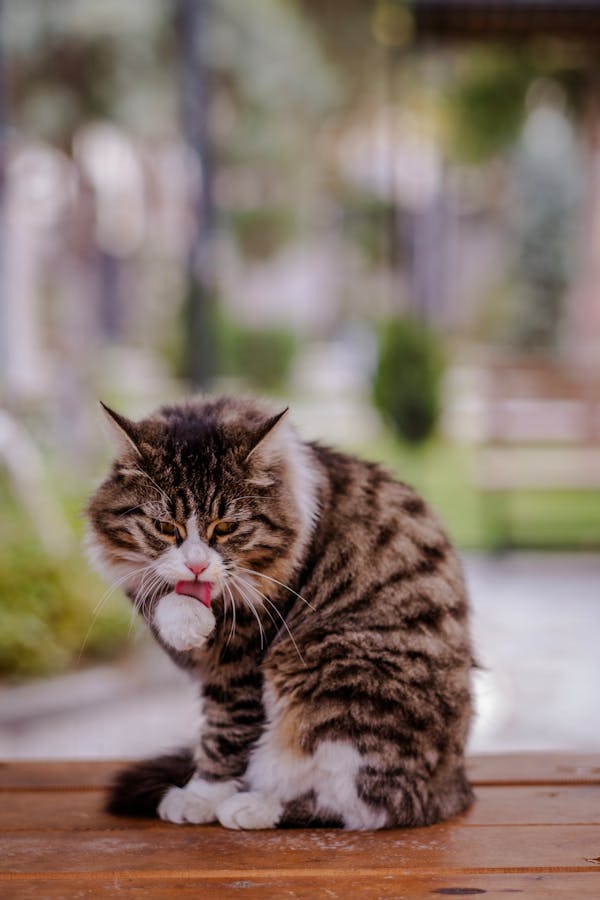
Create a safe space
It’s important for your cat to have a quiet, comfortable place to retreat to when they’re feeling stressed.
This space should have cozy bedding, some favorite toys, and easy access to food and water.
Think of it as your cat’s personal sanctuary where they can relax and feel safe.
Avoid punishment
Never punish your cat for over-grooming.
This can make them more anxious and worsen the problem.
Instead, gently redirect their attention to something else, like a toy or a play session.
Punishment can increase their stress, making the over-grooming behavior more severe.
Use calming products
There are products available that can help calm your cat.
Synthetic pheromones, like Feliway, can mimic the natural calming scents that cats produce, helping them feel more secure.
Calming supplements can also be an option to reduce anxiety.
These products can create a more relaxed environment for your cat.
Monitor and redirect behavior
Keep an eye on your cat’s grooming habits.
If you notice them starting to groom excessively, try to distract them with play or other activities.
This helps break the cycle of over-grooming by giving them something else to focus on.
Engaging them in interactive play can be a great way to redirect their attention.
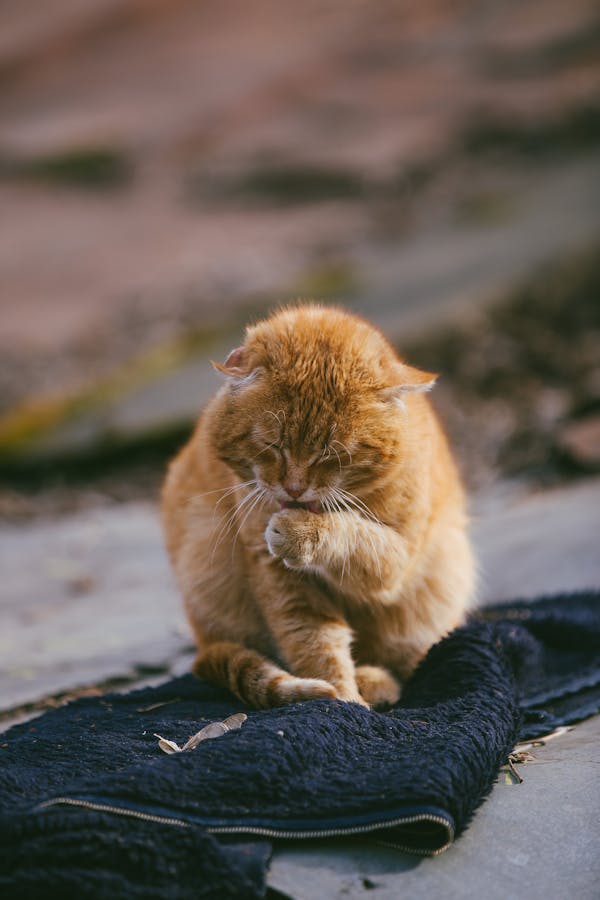
Conclusion
Over-grooming in cats is a complex issue that can stem from both medical and behavioral causes.
By understanding the underlying factors and implementing practical solutions, you can help your cat return to a healthy grooming routine.
Always consult a veterinarian to rule out medical conditions and consider environmental enrichment and stress reduction techniques to address behavioral causes.
With patience and care, you can support your cat’s well-being and reduce over-grooming.
FAQs
Look for signs like bald spots, skin irritation, and obsessive licking. A veterinarian can perform tests to diagnose underlying medical conditions.
Common stressors include loud noises, new pets or family members, and changes in routine. Identifying and minimizing these stressors can help reduce over-grooming.
Yes, over-grooming can indicate serious health issues like allergies, infections, or pain. It’s important to consult a veterinarian to rule out medical conditions.
No, you should never use human medications for cats. Always consult a veterinarian for appropriate treatments and medications for your cat’s specific needs.
- Does Cat Litter Melt Ice? The Complete Guide to Winter Safety - January 30, 2026
- Happy Tail Dogs: Understanding This Common Canine Condition - January 29, 2026
- How Cold Can Outdoor Cats Handle? Feline Winter Safety - January 27, 2026


GIPHY App Key not set. Please check settings